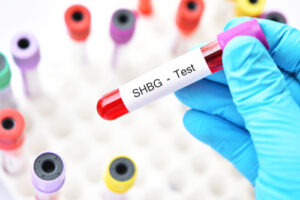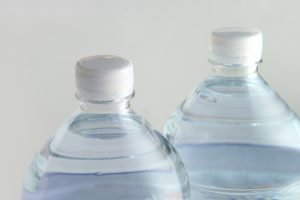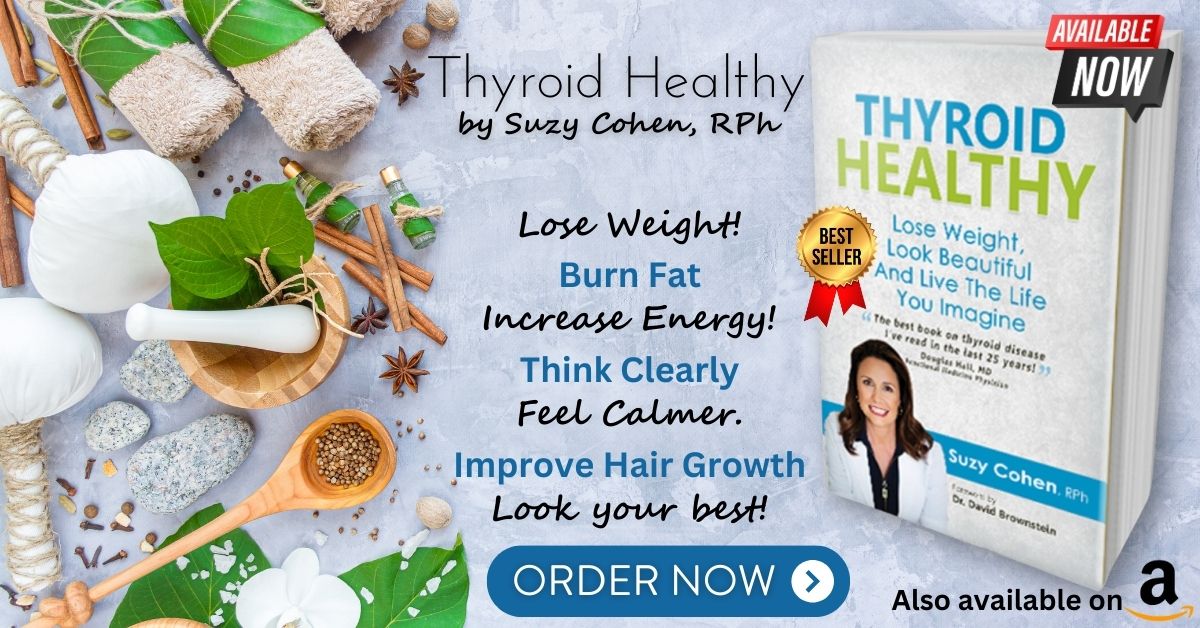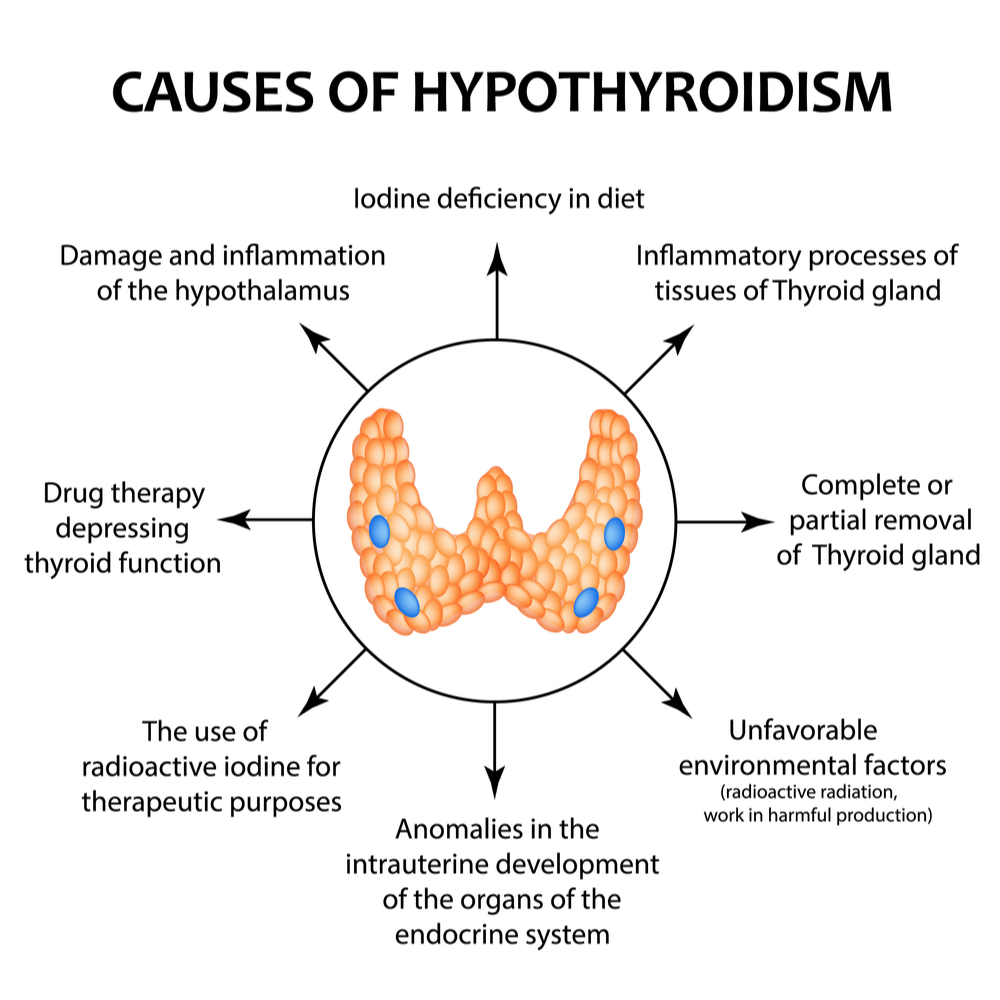What's On This Page?
ToggleThis article will cover thyroid health and the impact of certain pills like “The Pill” and plastics.
Drinking from plastic water bottles, or taking “The Pill” can cause hypothyroidism by raising levels of estrogen hormone in your body. The same can be said about menopause drugs which contain the same synthetic estrogen ingredients or commercial cattle injected with estrogen hormones to make animals heavier at the point of sale.
The Estrogen Pill Connection
In humans, these hormones known as The Pill raise estrogen, and estrogen holds fat. This sounds counterintuitive, but men frequently have high levels of estrogen, especially if they have prostate problems but that’s another article. My point is excess estrogen causes too many transporters, or taxis which bind up your active thyroid hormone. When bound like that, thyroid hormone is completely unavailable to your cells which is where you need it.
Scientifically termed “thyroid binding globulin” or TBG, these transporters drive your thyroid hormone around your blood and drop it off at your cells to wake you up and burn off that foot-long sub you had last night.
When TBG is high, free thyroid hormone (Free T3) is low and you will have symptoms of hypothyroidism, more specifically you are what I call “thyroid sick.” You can read more about TBG here on Medscape.
I talked about this in my Thyroid Healthy book. In case you didn’t realize this, I want to remind you that hypothyroidism is a risk factor for premature birth, low birth weight, miscarriage and poor fetal neurological development. You may be interested in my other article, 2 Essential Nutrients You Must Have Before Pregnancy.
Since the popular (relatively useless) TSH blood test doesn’t mirror how you really feel, and fails to reflect intracellular thyroid levels, I suggest two special blood tests which paint a better picture:
Sex Hormone Binding Globulin or SHBG
Expanding on the intriguing connection between sex hormone-binding globulin (SHBG) levels and thyroid hormone, particularly in women, unveils a complex interplay that significantly impacts health. SHBG is a protein produced by the liver, playing a pivotal role in transporting sex hormones like estrogen and testosterone through the bloodstream, regulating their availability to body tissues.
The suggested SHBG level for optimal health underscores the need for a balanced hormonal environment, with women having a higher threshold (<70) compared to men (<30), reflecting the differential impact of sex hormones across genders.

The relationship between SHBG and thyroid hormone is particularly pronounced in women due to the intricate balance between estrogen, thyroid hormones, and insulin. Elevated levels of estrogen, as seen during certain phases of the menstrual cycle, pregnancy, or with estrogen therapy, can increase SHBG levels.
Similarly, optimal thyroid hormone levels are crucial for maintaining the right SHBG levels, as thyroid hormones directly influence the liver’s production of SHBG.
Therefore, a low SHBG level in women can be a marker for various underlying issues: It may indicate hypothyroidism (low thyroid hormone levels), hyperinsulinemia (high insulin levels, often a precursor to diabetes), or low estrogen levels.
Causes of Hypothyroidism
The Impact of Environmental Toxins on Thyroid Health
When we talk about thyroid health, we often focus on diet and medication, but there’s another critical player in the game: environmental toxins. These sneaky saboteurs, lurking in everything from your household cleaning products to the air you breathe, can have a profound impact on your thyroid function.
Let’s dive into how common environmental toxins like BPA, phthalates, and PCBs (polychlorinated biphenyls) can mimic thyroid-disrupting hormones and wreak havoc on your metabolic maestro.

The Thyroid-Toxin Tango
Bisphenol A (BPA), commonly found in plastics and food can linings, is a notorious endocrine disruptor that can mimic estrogen. Similar to how “The Pill” influences thyroid hormones by increasing estrogen levels, BPA can bind to thyroid hormone receptors, blocking them from activating your thyroid hormone. This interference can lead to decreased thyroid hormone production and the exacerbation of hypothyroid symptoms.
Phthalates, another group of chemicals used to make plastics more flexible, are no friends to your thyroid either. Found in everything from vinyl flooring to personal care products, phthalates can reduce thyroid hormone levels by disrupting signals in the brain that tell the thyroid gland to kick into action.
Lastly, PCBs, though banned in the 1970s, persist in our environment and continue to pose a risk. These chemicals accumulate in tissues over time and have been shown to alter thyroid hormone levels in the bloodstream, potentially leading to thyroid dysfunction.
Empowering Your Thyroid Against Environmental Toxins
But fear not! You are not powerless in the face of these environmental villains. Here are a few actionable steps you can take to minimize your exposure and protect your thyroid:
- Go Green with Your Cleaning: Opt for natural cleaning products or make your own from ingredients like vinegar, baking soda, and essential oils to reduce your exposure to harmful chemicals.
- Choose Beauty Wisely: Select beauty and personal care products that are free from phthalates and other endocrine disruptors.
- Look for products labeled as “phthalate-free” and check the Environmental Working Group’s (EWG) Skin Deep database for safe options. Also, you may love my very clean, and effective skin care line. If you’d like to see those products and serums, CLICK HERE.
- Be Mindful of Plastics: Whenever possible, choose glass, stainless steel, or BPA-free plastics for food and drink storage. Heat can cause plastics to leach chemicals, so never microwave food in plastic containers.
- Filter Your Air and Water: Invest in high-quality air and water filters to remove pollutants and chemicals from your environment. This can help reduce your overall toxin load and support thyroid health.
By understanding the impact of environmental toxins and taking steps to reduce your exposure, you can support your thyroid gland and maintain better overall health. Remember, every small change you make can lead to significant health benefits down the road. So, grab your glass water bottle, toss those toxic cleaners, and step into a healthier, thyroid-friendly lifestyle!
Make the Switch
There are a few simple things that help. For one, you can switch out your plastic water bottles for glass bottles. You can buy grass-fed, organic free-range meats more frequently.
As for the pills, it’s a little tougher. You can find an alternate form of hormone replacement or contraception. You can ask doc about natural over-the-counter aromatase inhibitors like chrysin or DIM. You should try different thyroid pills or add some T3 to build up higher levels of T3 hormone. Most of all, don’t resign yourself to “this is just my life” or “my doctor is really nice so I can’t speak up for myself.” I believe you can get well.
Never resign yourself to symptoms that leave you feeling less than healthy, sexy, strong and energetic!
Summary: 5 Ways The Pill and Plastics Impact Your Thyroid Health
- The Pill’s Impact: “The Pill” raises estrogen levels, which in turn can increase thyroid binding globulin (TBG), reducing the availability of free thyroid hormones and potentially leading to hypothyroidism symptoms.
- Plastics and Estrogen: Plastics (BPA) can mimic estrogen and interfere with thyroid hormone receptors, potentially blocking thyroid hormone activation and reducing production.
- Environmental Toxins: Common environmental toxins such as phthalates and PCBs can disrupt thyroid function by various mechanisms including altering brain signals to the thyroid and changing hormone levels in the bloodstream.
- Dietary and Lifestyle Changes: Changes in lifestyle and diet mitigate the impact of “The Pill” and plastics on thyroid health, including choosing safer plastics, avoiding certain chemicals in beauty products, and more.
- Nutritional Support and Supplements: The role of selenium and other nutrients are useful in supporting thyroid health and combating the negative effects of “The Pill” and environmental toxins.

Suzy Cohen, has been a licensed pharmacist for over 30 years and believes the best approach to chronic illness is a combination of natural medicine and conventional. She founded her own dietary supplement company specializing in custom-formulas, some of which have patents. With a special focus on functional medicine, thyroid health and drug nutrient depletion, Suzy is the author of several related books including Thyroid Healthy, Drug Muggers, Diabetes Without Drugs, and a nationally syndicated column.




